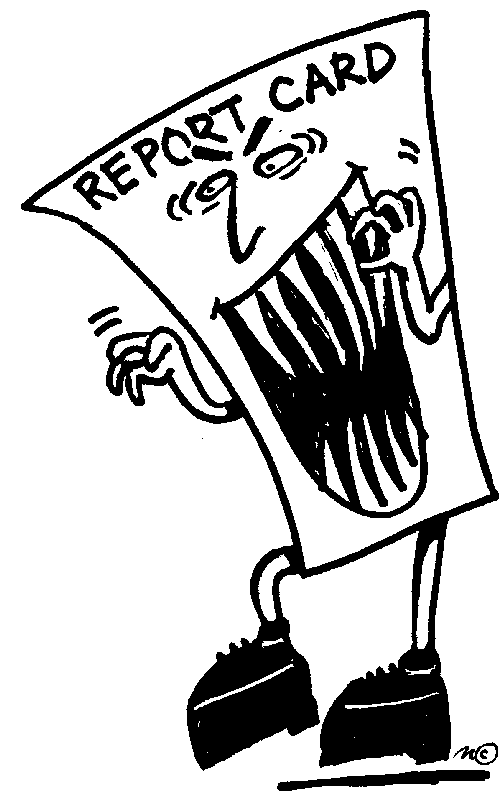Barbara Hewitt
We all know that the job and internship market is competitive, and as an applicant you want to make yourself stand out from the scores of other job seekers our there. You strive to put your best foot forward to increase the odds that an employer will select you for an interview. This competitive environment is heightened even more during on-campus recruiting, when lots of students, all in one place, are vying for the same interview slots. The pressure can be intense and it can be tempting to step over the ethical line and do things you shouldn’t to give yourself an edge.
Don’t do it! You are only as good as your reputation, and if you do things that are unethical in the job search you will come to regret it. The professional world is very small – people in the same industry often know one other (and talk to each other!), so burning bridges with one employer can ultimately have more far-reaching effects than you could ever imagine. (A couple of years ago, I spoke with a student who had a job offer withdrawn from an employer in London who found out that he was still interviewing with a different employer in New York, even though the student had indicated he had withdrawn all his applications. Even on different continents, things you might think an employer would never learn about can come back to haunt you!)
Here are just a few of the ethical issues that might arise in your job or internship search:
Honesty:
While you want to present yourself as positively as possible on your resume and in interviews, it is imperative that you are honest. Sometimes this is very clear cut. Flat out lying about your GPA, positions you’ve held, or specific accomplishments is clearly wrong. While such lies may not be caught by every employer you send your resume to, sooner or later someone will follow-up, asking for an official transcript, reference, or simply probing questions that you won’t be able to adequately answer. Keep in mind that the Career Services Office spot-checks transcripts and resumes, and if we find that a student has lied on his or her resume or altered a transcript, we immediately refer the case to the Student Conduct Office at Penn. Academic integrity is expected at Penn, and violations of it are treated very seriously. The consequences of such actions can be severe, including possible suspension or expulsion from the University.
While most students do not outright lie on their resumes, it is tempting to overstate accomplishments or your role in activities. Perhaps you were a contributing member of a team (but not really the “leader”), but state on your resume that you did indeed lead the team. Perhaps you overstated the size of a budget you handled for a student club, or the responsibilities you were given as a summer intern. As the recruiter questions you about the things listed on your resume, it will quickly become apparent that you did not, in fact, do all the things claimed. Once doubts are raised about one area of your resume, doubts will surface about all your other stated accomplishments. I once talked to a recruiter (an alum of Penn) who removed a student from consideration for a position because the student indicated that she was the president of an organization at Penn, while in fact the alum knew that the organization had co-presidents. Don’t let a similar situation occur because you have exaggerated something on your resume or in an interview.

Accepting an Offer
It is wrong to accept a job or internship offer, and then continue to interview for other opportunities in the hopes that something “better” (in your eyes) might come along. You would be outraged if you accepted an offer from an employer and then received a call a few weeks later to rescind it because the employer had “found a better candidate.” It is no different for employers. If you accept a position, you are expected to show up on the first day. Reneging on an offer seriously damages not only your personal reputation, but that of Penn as an institution. We have had employers in the past who have stopped recruiting at Penn because of students reneging on offers.
In an ideal world, you would have as much time as you need to consider an offer and finish all other interviews of interest to you. However, in the real world, things don’t always work out as smoothly as you would like. Most employers won’t wait indefinitely for you to respond to an offer and often will pressure you to respond quickly. (Please see our employer offer policy for on-campus recruiting.) Some employers may even ask if you would accept an offer before they officially extend it to you. In such circumstances, you may be tempted to accept the offer quickly due to the pressure, but you should ONLY do so if you are indeed committed to working at the organization. If not, politely ask if they could extend the deadline for you for a reasonable amount of time. If they won’t, you may be forced to make a decision before you would like….but you should not accept with the idea of reneging later if you receive another offer. Think carefully about what is at stake and whether you really want to work for such an aggressive employer. (When I received my very first job offer out of graduate school, the employer asked me to make a decision on the spot. I didn’t feel that I would want to work for such a manager and, although difficult, turned down the opportunity. Fortunately, a few days later, I received another offer from a place where I was much more enthusiastic about working.)
Holding Multiple Offers
As a job seeker, you may find yourself in a situation in which you have received offers from several employers. In this case, you should decline the offers you don’t plan to accept as soon as possible. The employers will appreciate your quick response so that they can move forward with their search and extend the offer to another candidate (perhaps even another Penn student!).
It would be unrealistic to expect all ethical dilemmas in the job search to be clear cut or easily resolved. The fact is, many situations are complex. The Career Services staff is here to discuss issues that might arise in the search with you. Come in and talk with us.












